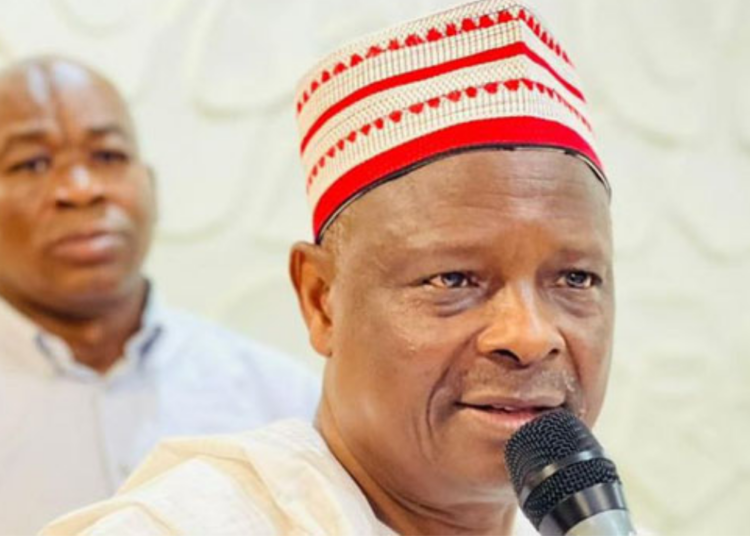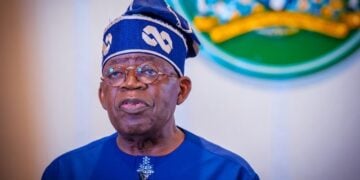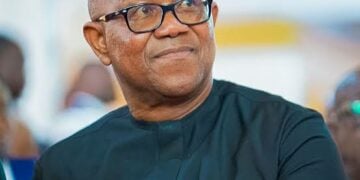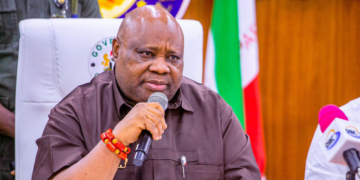The former governor of Kano State, Dr Rabiu Musa Kwankwaso is the man of the moment in Kano State in particular and Nigeria, to an extent, due to his rising political profile. The 66-year-old politician caused a stir in the nation’s politics recently when he contested for the presidency on the platform of the New Nigeria People’s Party (NNPP), an entirely new party that captured power in Kano State.
He won in Kano State but lost the entire election to Senator Bola Tinubu of the All Progressives Congress (APC) who was declared winner of the contest by the Independent National Electoral commission (INEC).
Kwankwaso (born on October 21, 1956) is a Nigerian politician who was governor of Kano State from 1999 to 2003 and 2011 to 2015. After he lost his re-election in 2003, he was appointed the minister of defence during the Fourth Republic with no prior military background from 2003 to 2007, under the administration of former President Olusegun Obasanjo. He was later elected to the Senate in 2015, serving one term under the platform of the All Progressives Congress (APC) representing Kano Central Senatorial District.
However, though Kwankwaso lost his bid to clinch the exalted position of the number one citizen of the nation, the People of Kano State demonstrated their love for him and cast votes close to one million for him and three weeks later, massively voted for his anointed political son and in-law, Engr Abba Kabir Yusuf to emerge governor of Kano State with over a million votes. The development proved his might in the political landscape in the state and has sent many to forceful political retirement.
Additionally, the reason Kano people are attracted to the political philosophy of Dr Kwankwaso is not far-fetched. This is because the man has been tested and trusted. He was elected member of the House of Representatives and became deputy speaker way back in 1999.
He was elected governor twice and demonstrated courage and resilience in almost everything that could bail the commoners from the shackles of poverty, illiteracy and hopelessness.
The average Kano citizen believes that Kwankwaso always thinks of the people’s plight first rather than advancing the struggle for self-aggrandisement.
He is determined to see the children of the less privileged studying abroad as depicted during his second tenure where he sent about 2,600 students to school abroad. This quality endeared him to young Kano men and women who saw and rated him as their political saviour.
Today, most of them have returned home now with their professional certificates handy and contributing their quota to nation-building. Some are pilots, engineers, doctors, nurses, among other professional disciplines. Some of the beneficiaries have thus resolved not to part ways with the Kwankwasiyya political ideology.
Back home, Dr Kwabkwso had established the Kano University of Technology in Wudil now renamed Dangote University of Technology.
Likewise, the second citadel of knowledge he established was the North West University now Yusuf Maitama Sule University aimed at giving opportunities for the whole of North West students to study and achieve their ambitions in life.
Dr Kwankwaso further established more than 270 secondary schools to pave way for the pupils who have completed their studies at the primary level to get admission straight into the existing schools. Most of these schools are still functioning and graduating students who have gone for further studies in many Nigerian universities.
Symbolically, the leader of the Kwankwasiyya Movement is rarely seen without his red cap. It is said to be a symbol of his ambition and his achievements.
The hats are also worn by his supporters in Kano and some states throughout the country who are part of his Kwankwasiyya Movement, which translates from Hausa as the “Red Cap Revolution.” They always stick to the ideology of emancipating the cause of the downtrodden masses.
This loyal political fans’ group has even followed him as he has switched parties. In particular, his move in 2013 from the then-governing Peoples Democratic Party to the All Progressives Congress, the current ruling party.
In his political journey, he has been with five parties, and recently the presidential candidate of the New Nigeria People’s Party (NNPP), a party little known nationally until he joined last year and the impact it has made within four months in Kano is unprecedented.
Although before the contest, analysts postulated that his chances were not bright as it pertains to winning the election outright, given that his power-base is largely in the north, but could cause a serious political upset by taking northern votes from Bola Tinubu of the APC and Atiku Abubakar of the PDP.
To win a presidential election, a candidate must win 25 percent of the total votes cast in two-third of Nigeria’s 36 states, as well as having the highest number of votes but Kwankwaso was unable to achieve this at the end of the contest.
At one stage, a merger had been suggested between the duo of Kwankwaso and the Labour Party candidate, Peter Obi who hails from the South-east. Some said such an alliance stood a chance of wresting power from the APC but at last, it crashed because the two could not reach a tangible and conclusive agreement.
The Kano politician was later quoted in a BBC interview categorically ruling out the merger possibilities saying the Labour Party candidate lacked powerful political pedigree compared to him. “You can’t compare him to me who have been in politics for many years,” he had said.
Murtala Ahmad, a member of the Kwankasiyya Movement argued that his candidate’s fame and influence stretches beyond Northern Nigeria and postulated that Obi lacks the moral political tombac to compete with his mentor.
And there is no doubt that he is one of the four leading candidates and should it go to a second round, he could become a king-maker given his loyal following in Kano, where he first became governor in 1999.
Although this is not the first time Kwankwaso is losing. In fact, he lost his gubernatorial re-election bid in 2003, which was when the then-President Olusegun Obasanjo made him defence minister.
His main agenda is how to fight the current state of insecurity in the country and militancy in the north, kidnappings, farmers/fulani conflicts and a separatist rebellion in the south-east as well as to boost the Army’s head count to one million by recruiting 750,000 extra personnel.
After his time in government, he returned to state politics, which is when he formed the Kwankwasiyya Movement, taking inspiration from the late renowned anti-colonial freedom agitator, Malam Aminu Kano, who became an eminent politician and social reformer in northern Nigeria after independence.
Dressed in a red cap and a flowing white kaftan, he was famous for pointing out the inequalities of what was a fairly feudal society in the region – fighting for more equality, including the rights of women.
Kwankwaso said, Kwankwasiyya embodied those ideals and the movement has attracted a large following which likes to dress like their mentor.
Mr Kwankwaso said he has delivered on boosting education, water, health, environment and infrastructure in particular though his educational reforms was making education free at all levels to this day and he has since urged Abba Yusuf, the state governor-elect to continue with similar programmes when he takes over the mantle of leadership come May 29.
We’ve got the edge. Get real-time reports, breaking scoops, and exclusive angles delivered straight to your phone. Don’t settle for stale news. Join LEADERSHIP NEWS on WhatsApp for 24/7 updates →
Join Our WhatsApp Channel










